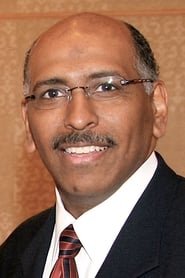
Ask Your Own Question
What is the plot?
The episode opens with anchor Maya Chen seated at the main desk of The Weeknight studio, her expression serious as she introduces the night's lead story: escalating tensions in the South China Sea following a naval standoff between U.S. and Chinese vessels. Chen provides a brief recap of the previous week's diplomatic maneuvers, highlighting the U.S. Secretary of State's emergency meeting with regional allies. She then cuts to a live feed from the Pentagon, where Defense Department spokesperson General Robert Hayes delivers a statement warning of "unprecedented aggression" by Chinese forces and announces the deployment of additional U.S. naval assets to the region.
Chen returns to the studio and introduces her first guest, Senator Elizabeth Vance, who appears via satellite from Washington, D.C. Vance argues for a measured response, emphasizing the need for diplomatic channels and cautioning against military escalation. She cites intelligence reports suggesting the Chinese action may have been a miscommunication rather than a deliberate provocation. Chen presses Vance on whether the administration is prepared to risk war, and Vance responds that the U.S. must stand firm but not rush into conflict. The segment ends with Chen thanking Vance and transitioning to a commercial break.
After the break, Chen introduces investigative reporter Jamal Reed, who is reporting from Manila. Reed details eyewitness accounts of the naval incident, describing how a Chinese destroyer allegedly rammed a U.S. destroyer during a routine patrol. He interviews local fishermen who claim to have seen the collision and shows footage of damaged vessels. Reed then speaks with a U.S. Navy officer, who confirms the collision but says the U.S. ship sustained only minor damage and no casualties. Reed concludes by noting that both sides are blaming each other for the incident and that regional allies are on high alert.
Chen returns to the studio and introduces a panel discussion featuring foreign policy expert Dr. Amara Patel and former CIA operative Mark Langston. Patel argues that the incident is part of a broader pattern of Chinese assertiveness in the region and warns that continued provocations could lead to a wider conflict. Langston counters that the U.S. must avoid overreacting and should focus on de-escalation, citing the risks of miscalculation in a tense environment. The debate grows heated as Patel accuses Langston of being too accommodating to China, while Langston accuses Patel of advocating for a dangerous escalation. Chen moderates the discussion, pressing both guests on their positions and the potential consequences of their recommendations.
After the panel, Chen introduces a segment on the domestic political fallout from the crisis. She interviews White House Press Secretary Olivia Grant, who defends the administration's response and emphasizes the president's commitment to protecting U.S. interests while seeking a peaceful resolution. Grant reveals that the president has authorized emergency talks with Chinese officials and is preparing to address the nation later that evening. Chen asks Grant about criticism from both parties, and Grant responds that the administration is acting in the best interests of national security.
Chen then shifts to a segment on public reaction, showing clips of protests in major cities and interviews with ordinary citizens expressing fear and anger over the possibility of war. She speaks with a military family in San Diego, whose son is deployed in the Pacific, and they express anxiety about his safety. Chen also interviews a group of college students who are organizing a peace rally, and they call for the government to pursue diplomacy over military action.
After another commercial break, Chen returns to the studio and introduces a special report from correspondent Sarah Kim, who is live from Beijing. Kim reports on the Chinese government's response, showing footage of state media blaming the U.S. for the incident and calling for a strong defense of national sovereignty. She interviews a Chinese academic who argues that the U.S. is trying to contain China's rise and that the incident is a pretext for increased military presence in the region. Kim concludes by noting that Chinese officials have canceled upcoming diplomatic meetings and are preparing for a possible escalation.
Chen returns to the studio and introduces a final segment featuring a live interview with President Elena Ramirez, who appears from the White House Situation Room. Ramirez delivers a somber address, acknowledging the gravity of the situation and expressing her commitment to protecting American lives and interests. She announces that she has ordered the military to stand down from immediate escalation but has authorized contingency plans in case of further provocations. Ramirez calls for calm and unity, urging Americans to support their troops and trust in the government's ability to handle the crisis. She ends by saying that she will continue to pursue diplomatic solutions and keep the public informed.
The episode concludes with Chen summarizing the night's developments and thanking the guests. She signs off with a message of hope, urging viewers to stay informed and engaged as the situation unfolds. The screen fades to black with the show's logo and the date.
Related Titles
Browse All Titles →What is the ending?
The episode "September 25, 2025" of The Weeknight ends with a significant news report about the indictment of former FBI Director James Comey, followed by expert legal analysis and political commentary. The show closes with reflections on accountability and the political climate, leaving the main hosts engaged in a serious discussion about the implications of these events.
Expanded narrative of the ending scene by scene:
The final episode opens with a breaking news segment announcing that former FBI Director James Comey has been indicted. This announcement sets a tense and serious tone for the episode's conclusion. The hosts--Alicia Menendez, Michael Steele, and Symone Sanders-Townsend--introduce legal analysts Mary McCord and Kristy Greenberg, who provide detailed insights into the indictment's legal ramifications. The conversation is focused and analytical, emphasizing the gravity of the situation and its potential impact on the political landscape.
As the discussion progresses, the hosts and analysts explore the broader theme of accountability in politics. Michael Steele highlights the importance of holding public figures responsible for their actions, noting that while some may feel secure now, they will eventually have to face consequences. Symone Sanders-Townsend echoes this sentiment, underscoring the need for political accountability and the long-term effects of current events on governance and public trust.
The episode then shifts to a brief segment covering other political news, including the return of Jimmy Kimmel to late-night television and reactions from various political groups. This segment serves as a contrast to the heavy legal discussion, providing a glimpse into the cultural and media environment surrounding the political events.
In the closing moments, the hosts reflect on the ongoing political tensions and the challenges facing the Democratic Party. They discuss the possibility of finding common ground and moving forward despite the divisive atmosphere. The episode ends with a sense of unresolved tension but also a cautious hope for political accountability and progress.
Regarding the fate of the main participants:
-
Alicia Menendez, Michael Steele, and Symone Sanders-Townsend remain engaged as the show's anchors, continuing their roles as informed commentators and facilitators of political discourse.
-
Legal analysts Mary McCord and Kristy Greenberg conclude their expert contributions, having provided clarity on the indictment's significance.
-
The episode does not depict any personal fate changes for these individuals but rather focuses on their professional roles in analyzing and reporting the unfolding political events.
This ending emphasizes the show's commitment to in-depth political analysis and the importance of accountability in public service, leaving viewers with a clear understanding of the episode's key developments and their implications.
Is there a post-credit scene?
The episode titled "September 25, 2025," which is episode 99 of season 1 of the TV show The Weeknight, does not have any publicly available information indicating the presence of a post-credit scene. None of the search results or official episode descriptions mention a post-credit scene for this episode. The show typically features one-on-one conversations with politicians and newsmakers and covers breaking issues of the day, which generally do not include post-credit scenes.
What specific political controversy did Alicia Menendez focus on during the September 25, 2025 episode of The Weeknight?
During the September 25, 2025 episode of The Weeknight, Alicia Menendez led a segment focusing on the fallout from newly released campaign finance reports, zeroing in on allegations that a major Democratic Senate candidate had accepted undisclosed donations from foreign-linked PACs. She pressed a panel of legal experts and campaign insiders to clarify whether these contributions violated federal election law, and she highlighted internal party tensions over how to respond to the revelations.
How did Symone Sanders-Townsend challenge Michael Steele during their debate segment on September 25, 2025?
In the September 25, 2025 episode, Symone Sanders-Townsend directly challenged Michael Steele during a debate about the Republican Party's stance on voting rights legislation. She cited specific language from a recent GOP policy memo and questioned Steele's assertion that the bill was about election integrity, pointing out that the proposed measures would disproportionately affect minority voters in swing states. Sanders-Townsend pressed Steele to explain why his party continued to support the bill despite bipartisan criticism.
What breaking news story did The Weeknight cover in the final segment of the September 25, 2025 episode?
The final segment of the September 25, 2025 episode of The Weeknight covered breaking news about a surprise resignation from a high-ranking Justice Department official. The hosts analyzed the official's public statement, discussed the timing of the resignation in relation to ongoing investigations, and interviewed a former DOJ insider who provided details about internal disagreements over the handling of a major corruption probe.
Which guest appeared on The Weeknight on September 25, 2025, and what specific issue did they discuss?
On September 25, 2025, Senator Sydney Kamlager-Dove appeared as a guest on The Weeknight. She discussed her recent introduction of a bill aimed at expanding broadband access in rural communities, providing specific details about the funding mechanisms and the expected timeline for implementation. The hosts questioned her about potential opposition from telecom lobbyists and the bill's prospects for passage in the current legislative session.
What specific exchange between Alicia Menendez and Symone Sanders-Townsend stood out during the September 25, 2025 episode?
A notable exchange between Alicia Menendez and Symone Sanders-Townsend during the September 25, 2025 episode occurred when Menendez questioned Sanders-Townsend about her recent comments on social media regarding the Democratic Party's messaging strategy. Sanders-Townsend defended her position by citing specific polling data and recent election results, while Menendez pressed her on whether the party risked alienating moderate voters with its current approach. The exchange became heated as both hosts referenced specific campaign events and quotes from party leaders.
Is this family friendly?
The Weeknight, Season 1, Episode 99 ("September 25, 2025") is not considered family friendly. The show is a political news discussion program featuring in-depth analysis, interviews with political figures, and coverage of current events, often including emotionally charged topics such as national policy debates, social justice issues, and breaking news.
Potentially objectionable or upsetting aspects for children or sensitive viewers may include: intense political arguments, strong language or raised voices during heated exchanges, graphic descriptions of real-world events (such as violence, protests, or natural disasters), and discussions of sensitive topics like racism, inequality, or personal trauma. The program does not contain explicit nudity or sexual content, but the emotional intensity and mature subject matter make it unsuitable for young children or those easily distressed by confrontational or distressing news coverage.















